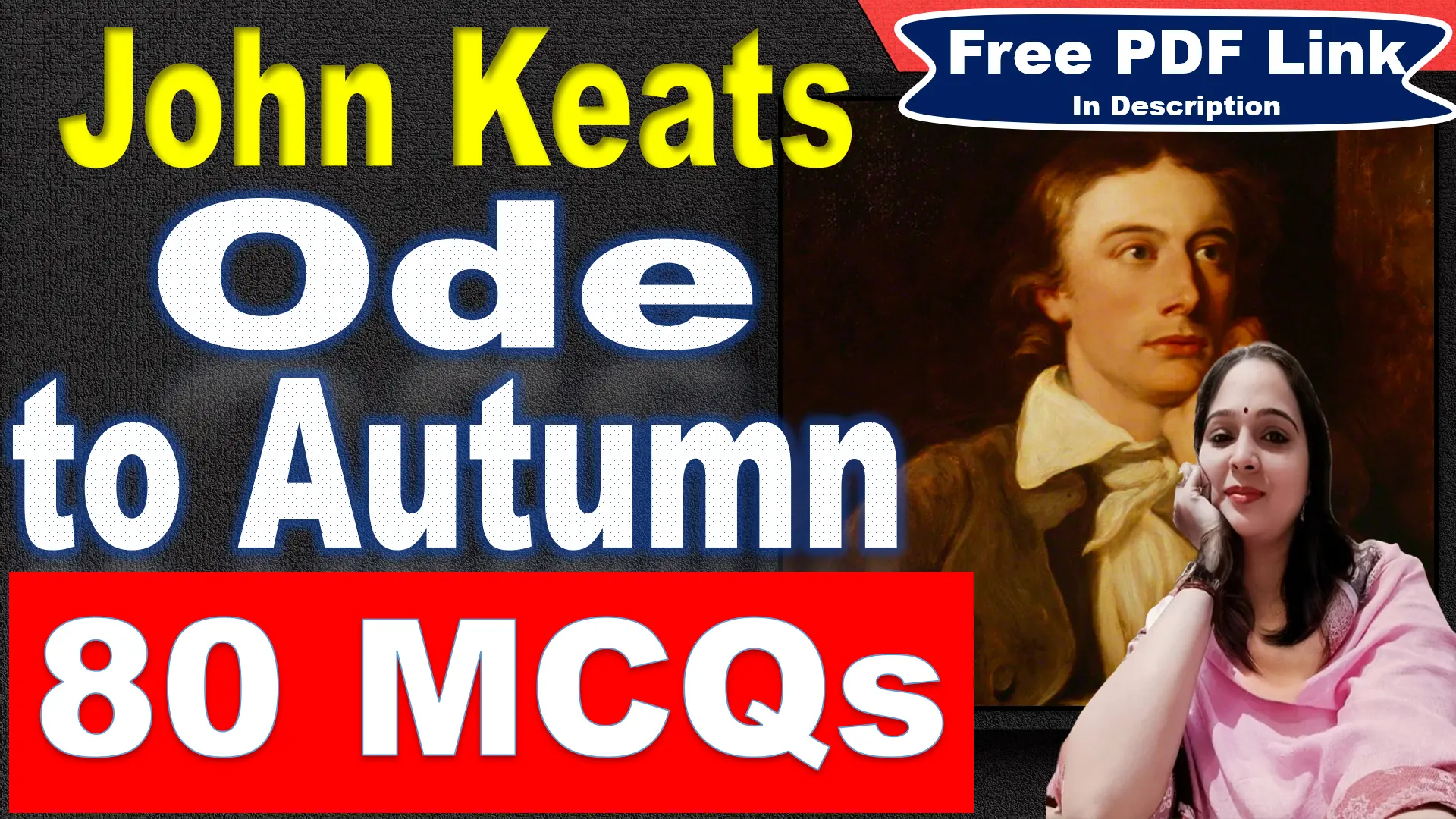
The Visitor Poem by Nissim Ezekiel Questions and Answers
Very Short Answer Questions
Who wrote The Visitor?
Nissim Ezekiel.
In which collection was The Visitor published?
Hymns in Darkness (1976).
What is the main theme of The Visitor?
The contrast between expectation and reality.
What does the crow symbolize in the poem?
An omen or harbinger of a significant event.
How many times does the crow caw in the poem?
Three times.
What did the speaker expect the visitor to be?
An angel or a form of temptation.
What was the visitor’s actual purpose?
Only to kill a little time.
What is the tone at the beginning of the poem?
Anticipatory and tense.
What is the tone at the end of the poem?
Reflective and resigned.
What metaphor is used to describe the triviality of the conversation?
“The cigarette smoke was more substantial than our talk.”
What is the rhyme scheme of the poem?
The poem is written in free verse with no specific rhyme scheme.
What realization does the speaker come to by the end?
Most events in life are ordinary and mundane.
What does “empty hands” symbolize in the poem?
The lack of significance or offering from the visitor.
What folk belief does the speaker refer to in the poem?
That a crow’s appearance precedes the arrival of a visitor.
What does the phrase “miracles of mind” refer to?
The speaker’s grand, imaginative expectations.
What does the “ebb-flow of sex and the seasons” represent?
The natural, repetitive cycles of life.
What poetic device is used in “neck craned like a nagging woman’s”?
Simile.
What does the speaker admit by saying, “I see how wrong I was”?
That their expectations were misguided.
How does Ezekiel use irony in the poem?
The highly anticipated visitor turns out to be ordinary.
What is the main message of The Visitor?
Life is often composed of ordinary moments rather than grand events.
Short Answer Questions
What is the significance of the crow in The Visitor?
The crow in The Visitor symbolizes a sense of foreboding, often linked to omens or bad luck. The speaker sees its presence as a sign of an important, possibly life-changing event, anticipating the arrival of a significant visitor. However, this expectation is not fulfilled, highlighting the theme that we often misread signs and project meaning where there is none.
How does the speaker’s attitude shift throughout the poem?
The speaker begins with eager anticipation, expecting the arrival of a meaningful visitor who might challenge or test them. As the day goes on and the visitor arrives, the speaker’s expectations are dashed when the encounter proves trivial. By the end, the speaker becomes reflective and resigned, accepting that most events in life are far more ordinary than anticipated.
What role does irony play in The Visitor?
Irony is central to the poem, as the speaker builds up expectations for a significant event, only to be met with a mundane reality. The visitor, who the speaker thought might be an angel or a temptation, merely comes to “kill a little time.” This contrast between expectation and reality underscores the irony, illustrating how life often defies the grand meanings we attach to it.
What is the meaning of the phrase “the cigarette smoke was more substantial than our talk”?
This metaphor emphasizes the triviality of the conversation between the speaker and the visitor. The act of smoking, something ephemeral and insubstantial, is ironically described as having more weight than their empty exchange of words. It reflects the speaker’s disappointment in the shallowness of the interaction.
What is the theme of expectation versus reality in the poem?
The poem explores the disconnect between expectations and reality. The speaker imagines a profound encounter following the crow’s appearance, but when the visitor arrives, the event is mundane and insignificant. This contrast reflects the broader human tendency to inflate expectations, only to be disappointed when reality turns out to be far more ordinary.
How does Nissim Ezekiel use symbolism in the poem?
Ezekiel employs several symbols to convey the poem’s deeper meanings. The crow symbolizes an omen or a sign of something significant, while the visitor’s “empty hands” represent the lack of substance or meaning in the encounter. “Cigarette smoke” symbolizes the fleeting, insubstantial nature of their conversation, reinforcing the poem’s themes of unmet expectations and life’s ordinariness.
How does the speaker view the visitor before and after the meeting?
Before the meeting, the speaker sees the visitor as someone important, possibly an angel or a test, expecting a meaningful encounter. After the meeting, the speaker is disillusioned, realizing that the visitor had no significant purpose and was simply passing time. This shift illustrates the contrast between the speaker’s inflated expectations and the mundane reality of the visitor.
What is the significance of the line “Outside the miracles of mind”?
This line reflects the speaker’s recognition that their expectations were a product of imagination. The “miracles of mind” refer to the grand, fanciful thoughts the speaker had before the visitor’s arrival. It highlights the disconnection between the imagined, idealized world and the ordinary reality of life, emphasizing the theme of disillusionment.
How does the poem reflect the ordinariness of life?
The Visitor reflects life’s ordinariness through the speaker’s experience of expecting something profound but receiving something trivial instead. The visitor arrives without purpose, and their superficial conversation underscores the insignificance of many life events, even those we hope will be meaningful. This realization is central to the poem’s theme.
What is the poem’s message about human expectations?
The poem suggests that human expectations are often exaggerated and unrealistic. People tend to create elaborate narratives around everyday events, hoping for profound or life-altering experiences. The Visitor demonstrates how these expectations frequently lead to disappointment, ultimately conveying that life is mostly made up of ordinary moments, not the dramatic occurrences we imagine.





